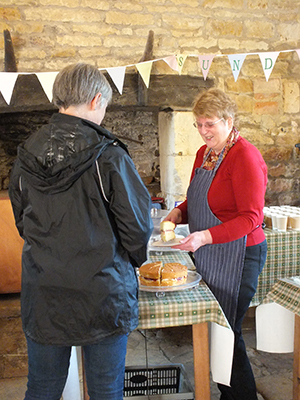1 Why do voluntary organisations need volunteers?

Many definitions of volunteering are used by government and voluntary organisations, but one that probably best captures the essence of volunteering is given by Musick and Wilson (2008, p. 1). They describe volunteering as an altruistic activity, which has the goal of providing ‘help to others, a group, an organisation, a cause, or the community at large, without expectation of material reward’.
What volunteers do and how they give their time varies considerably: some people volunteer regularly (e.g. once a week or month) or occasionally (e.g. for a one-off event); they might volunteer through one organisation or several. Some volunteering is even done online, with no need to go into an office or other venue. Microvolunteering, whereby people give small amounts of time (as little as 10 minutes and usually online), is increasingly promoted.
There is a difference between formal and informal volunteering. Formal volunteering relates to people giving unpaid help through groups, clubs or organisations. Informal volunteering relates to giving unpaid help as an individual to others who are not relatives, such as getting an elderly neighbour’s shopping, clearing snow from the streets, and so on.
Now that you have a sense of what volunteering is, and how diverse it is, we’d like you to think about why organisations need volunteers. The provision of unpaid support is the key defining feature of voluntary organisations. Many voluntary organisations were started by volunteers, some continue to function with no or just a few paid staff, but all involve volunteers in some capacity or other.
Exploring why organisations need volunteers can help you to understand the important contribution volunteers make to society and their importance to your own organisation. Furthermore, if you are currently volunteering, in paid work and working with volunteers, or thinking of applying to be a volunteer, you will gain a stronger sense of your role and place in the organisation.
Activity 1 Why are volunteers involved?
Read the following statements and decide which are valid reasons for involving volunteers in organisations. If you are involved with a particular organisation or group then you could also think about how the reasons apply to it.
- Volunteers are a ‘free’ resource and enable voluntary organisations or groups to do more work with limited resources.
- Many organisations were started by volunteers.
- Volunteers can help to break down the distinction between ‘helpers’ and ‘helped’.
- Involving volunteers means the organisation is more in touch with the people it seeks to help.
- Organisations want service users or members to be involved in the control and running of the organisation, and becoming a volunteer is a step towards this.
- Volunteers can bring a different perspective to their work, as well as help organisations represent a range of views and experiences.
- Volunteers can bring in skills that the workforce might not have.
- Organisations want to give people a chance to contribute to the work and causes they support.
Comment
Generally speaking, all these are valid reasons for organisations to involve volunteers, although different organisations will find some reasons more important than others. Inevitably, cost is a major consideration – often there is no money to pay staff and therefore the group can only run with volunteers.
Some public services have been cut (e.g. libraries) and paid staff have been replaced with volunteers. However, this list shows that volunteers can be involved for non-financial reasons too, and these are all important factors in helping volunteers to see the importance and value of their contribution. Many of these reasons will also have a direct bearing on how volunteer work is designed and how individuals are recruited.
Some voluntary organisations are largely staffed by volunteers, others operate with a mixture of voluntary and paid staff. In the latter case, the roles and jobs are usually distinct and different. It can be confusing for both groups of people if they are doing the same role, and could lead to resentment.
It is important for organisations to encourage interaction between the groups so that everyone feels part of the team. This means several factors have to be taken into consideration, such as:
- which jobs volunteers are being asked to do – and how they are supported and trained for them
- how volunteers work with paid staff and vice versa
- the level of resources invested in volunteers
- the relationship of volunteers with the decision-making processes of the organisation
- how volunteers will be recruited and selected.
This leads into the next section, where you will find out how volunteers are recruited and what this means for you if you are looking for a volunteer role, or if you are in a role where you might recruit volunteers. Many volunteers recruit other volunteers – either formally or informally.
